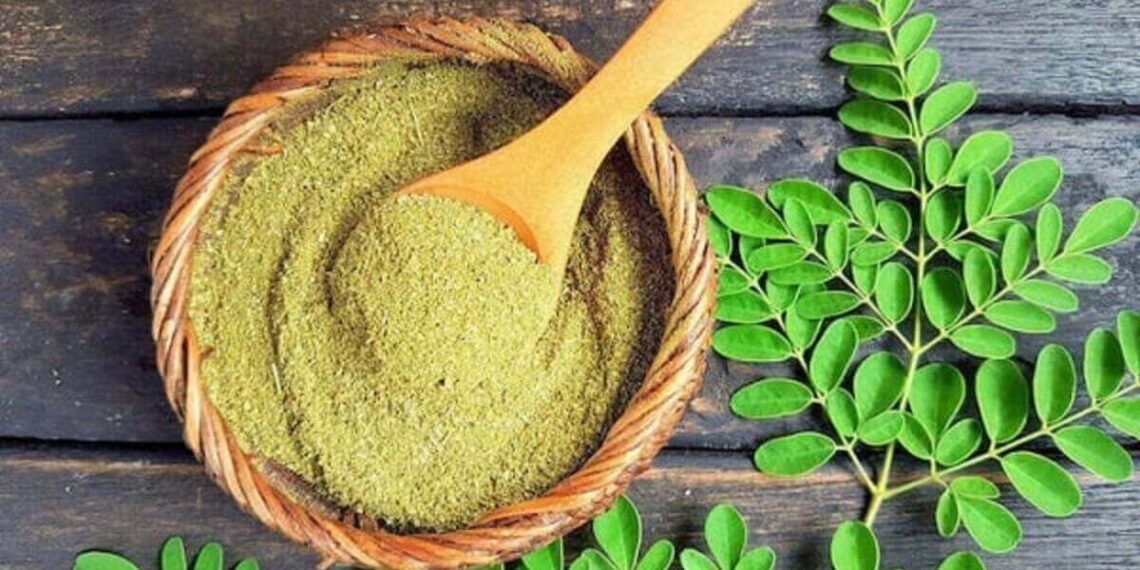Moringa Oleifera, or simply Moringa offers a host of benefits and is thought to be one of the world’s healthiest plants.
KAMPALA | NOW THEN DIGITAL — Moringa Oleifera (also known as the horseradish tree and the drumstick tree) is a genus of trees and shrubs belonging to the family Moringaceae.
- Moringa, also known as the drumstick tree, is a tree that is native to northern India. The leaves of the moringa plant are used to make powder. Some people take the powder for a variety of reasons, including to control blood sugar levels, protect the body from arsenic poisoning, and soothe stomach problems.
- Its antioxidant properties help to fight free radicals in the body. In addition, it can strengthen your immune system. It is also believed to reduce oxidative and inflammatory stress. It has been used to treat respiratory issues, including asthma and lung cancer.
- It may be beneficial to take moringa leaf powder, but it is important to discuss the side effects with your physician. It is always best to talk to your doctor before taking any supplements.
- Despite its anti-inflammatory properties, moringa is not a substitute for conventional medications. Although it has anti-inflammatory properties, moringa isn’t the only herb that fights bacteria.
- It also contains vitamin B, which speeds up the healing process of wounds. While this may not be an immediate benefit, it can help relieve symptoms of ulcerative colitis. Although it’s not a cure-all, moringa can help you stay healthy.
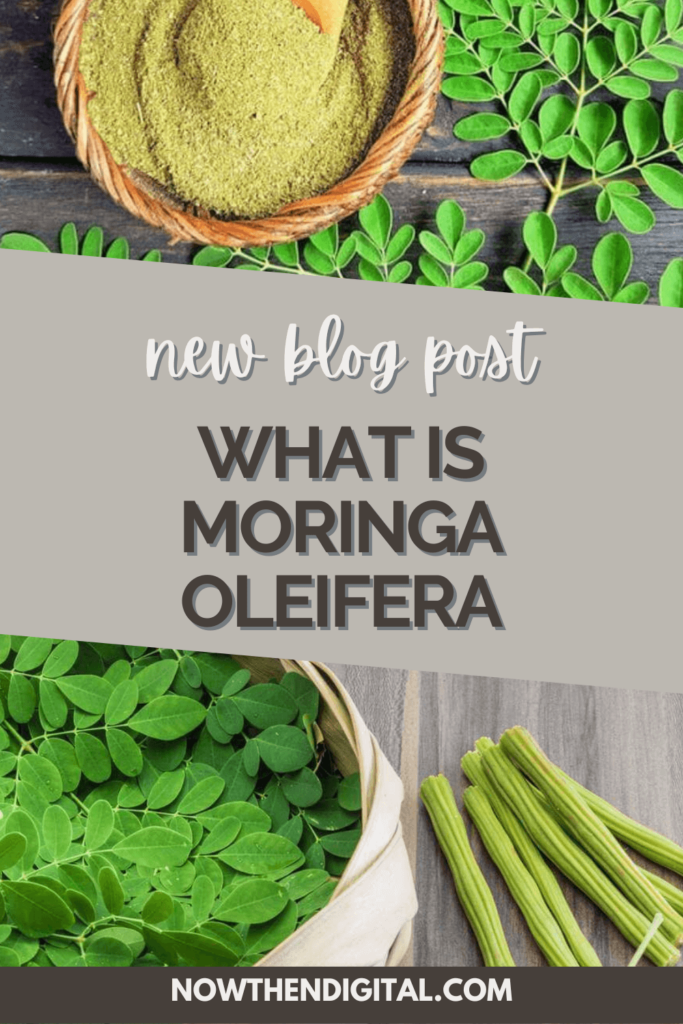
Moringa Oleifera – A Superfood
Moringa Oleifera is a drought-resistant tree native to the Indian subcontinent. It’s also known as the drumstick tree, horseradish tree, and benzolive tree.
It’s considered a superfood because it has so many benefits that it’s used in food and medicine. Its main benefit is a natural nutrient known as ben oil.
This oil is extremely useful for a variety of ailments, including inflammation, acne, and cancer.
The leaves of Moringa can be cooked or consumed raw. A Moringa tea made from Moringa leaves contains a natural antioxidant. You can also add Moringa to your salad or oatmeal.
Some brands claim that the powder contains more nutrition than kale. The seeds of Moringa are small, and they are not fibrous. You can cook them just like string beans, or enjoy them raw in salads.
The Moringa oleifera leaves contain almost as much protein as yogurt, twice the amount of Vitamin A, double that of oranges, and four times the amount of Vitamin C. One gram of Moringa leaves is equivalent to seven oranges.
Moringa has a high content of amino acids. Interestingly, it has twice the protein content of yogurt per gram. It also contains three times the amount of potassium as bananas.
Moringa can be used to increase milk production in nursing mothers. Research shows that it can also increase the nutrient intake of breastfed infants, although more research is needed on this.
Moreover, some studies have shown that the compounds in Moringa can protect against arsenic poisoning. Arsenic can increase the risk of cancer and heart disease. So, it’s crucial to avoid exposure to high levels of arsenic.
Moringa Oleifera Benefits
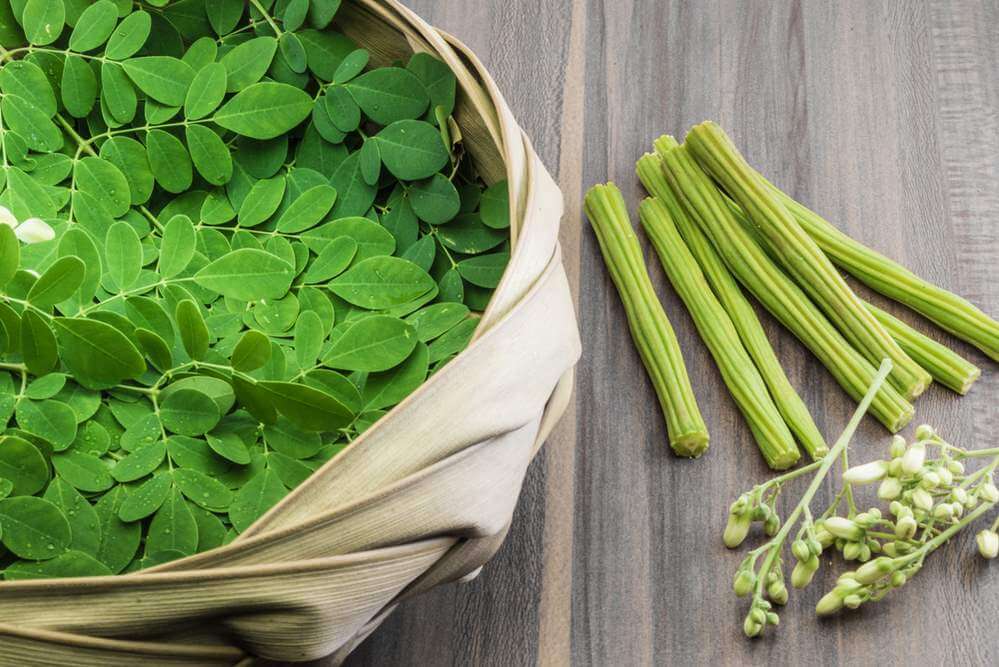
The Moringa Oleifera tree, also known as the tree of life, has numerous benefits. Not only is it used for food, but its seeds and oil are also used as perfumes and machine lubricants.
The plant’s leaves, stems, and flowers can be eaten raw or used in salads. The plant’s seeds are also used as water purifiers because they have anti-bacterial properties. The moringa plant is used to make tea and other food products.
The leaves of the moringa tree have the highest nutritional content and healing properties. In fact, they have more vitamin C and vitamin A than oranges or carrots. They are also a great source of potassium and iron.
The leaves are rich in antioxidants, which are beneficial for the body. The leaves are used to make moringa supplements. The oil is also used to treat diarrhea, constipation, and fluid retention.
The powder from the Moringa plant is also commonly used to make tea. You can take one or two teaspoons daily, depending on your health and preference. It’s best to store it in an airtight container and keep it away from heat and light.
Moringa extract can also be taken as a supplement in a glass of water. Regardless of the form, it can improve the nutritional value of your daily meals.
Moringa contains high levels of calcium and phosphorus, which improve bone strength and structure. This prevents bone loss as you age.
However, it is important to note that moringa is extremely difficult to process. This means that you have to buy it from a reputable source to get maximum results.
Fortunately, moringa benefits are generally safe when taken in supplemental amounts. Just be sure to consult your physician before taking any moringa supplements.
Moringa Side Effects
In some parts of the world, the herb Moringa Oleifera is considered to raise blood pressure. However, in a placebo-controlled clinical trial, the herb was shown to reduce blood pressure.
It is important to consult a physician before taking the herb. Other potential side effects include digestive upset, fatigue, and nausea. The benefits of Moringa oleifera far outweigh the risks. In most cases, the risks of taking the herb are minimal.
The leaves are the safest part of the Moringa plant for human consumption. The herb’s most effective dosage is 500 milligrams per pound of body weight, or 10.2 to 13.5 grams per kilogram of body weight.
In addition to the water leaf extract, a person should also consume the seeds. The leaves of Moringa oleifera are available in two different forms: seedpods and drumsticks.
The plant helps to control cholesterol levels and lowers the risk of cardiovascular disease. It is also effective in fighting bacteria and fungi and regulates thyroid hormone levels. It also improves brain function and can delay the onset of symptoms of Alzheimer’s disease.
It is a rich source of protein and vitamins and helps the liver function properly. It is also beneficial for the immune system. In addition to the above benefits, the herb has some possible side effects.
The benefits of Moringa oleifera have been recognized for millennia. The plant has been used in traditional medicine for millennia and is a substitute for animal protein. It is also used in the production of sunscreen and as an expensive perfume.
The plant has spread to Asia, Africa, and the Pacific Islands and is now an important part of the diet of many people in these regions. Despite its benefits, it is important to consult a health care professional before using this herb.
How to Use Moringa
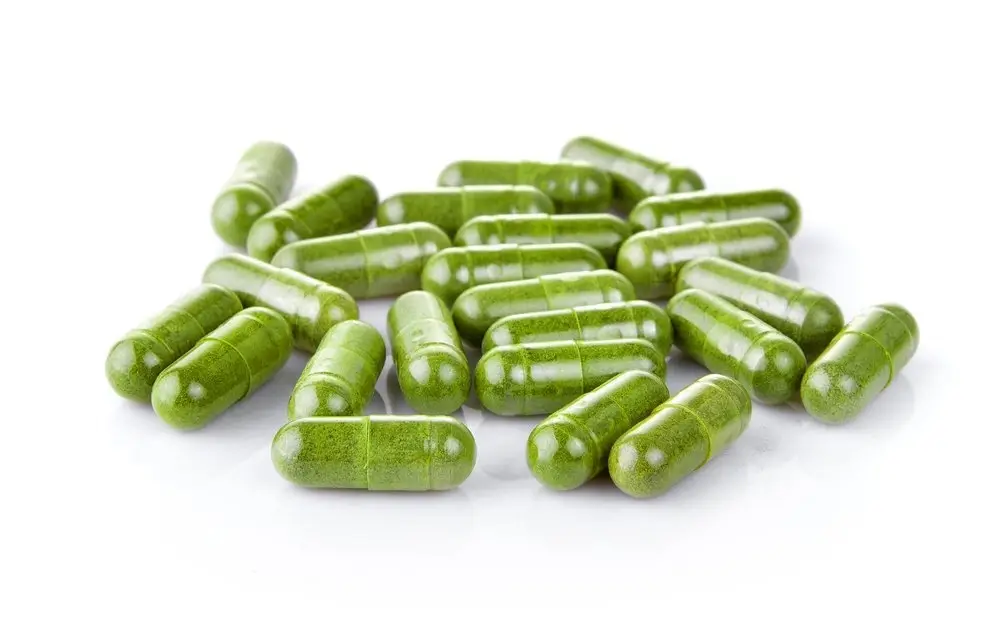
If you want to lose weight or get in shape, moringa powder can help you do so. It is a superfood that provides several benefits. Here are some steps you can take to make it work for you.
You can use the immature seeds of moringa as a side dish or cook them like peas or nuts. Moringa leaves can also be used as a side dish. And if you don’t want to eat the whole plant, just take a capsule.
Moringa oleifera seeds contain an oil that can be used on the skin. It has antimicrobial, anti-inflammatory, and antioxidant properties. These properties may contribute to clearer skin and counter acne breakouts.
Moringa is also used as a carrier oil for cosmetics. Besides being used as a beauty aid, it is also a natural remedy for many aliments. It can help you feel better, improve your mood, and reduce inflammation.
Moringa is available in capsule form, which can be added to smoothies or soups. It is also available in powder form that can be added to drinks and salads. It should not be cooked because it will lose its health benefits when heated.
It can also be added to sauces or taken as a supplement. It is important to note that moringa does not dissolve in water. However, if you’re looking to use moringa for health purposes, you should know that it is a superfood.
There are various ways to use moringa for weight loss. The most common way to take moringa is through a drink. Drinking a cup of moringa tea is a great way to get the nutrition you need without having to worry about high blood sugar or bloating.
You can also combine moringa oleifera with other super foods for extra health benefits. However, always consult a doctor before taking any kind of supplement.
Moringa Uses
The Moringa plant has a variety of benefits and is used in a variety of medicinal applications. It contains a wide range of vitamins, minerals and other compounds.
Many of these nutrients are important for the health of human beings. The following are just a few of these benefits.
These include: alleviation of anxiety and depression, relief of stomach disorders, and protection of the cardiovascular system. It is also used in the treatment of various types of arthritis.
One of the most common uses for the Moringa plant is as a dietary supplement. The oil obtained from the plant has anti-inflammatory properties and is useful in skin care.
The tree is also used in making charcoal. The leaves of Moringa oleifera are high in essential amino acids and antioxidants, and the plant is inexpensive. It has the potential to be used as a nutrient supplement in underdeveloped areas.
The leaves and roots of Moringa oleifera are used in washing wounds and sores. The plant’s root is also used to treat skin disorders. It can reduce inflammation and pain, and it can promote healing.
It has also been used as an abortifacient in some areas of the world. Its leaves, seeds and bark can also be used for medicinal purposes.
The Moringa plant can grow to nine meters tall and has compound leaves with three to nine leaflets. The tree produces long pods with winged seeds.
It can be propagated by planting seeds about an inch deep in the ground or by using mature stem cuttings. Cuttings from Moringa grow faster than seeds.
Because of its numerous health benefits, this plant deserves to be conserved. And it’s so popular, the plant is now used throughout the world to treat many ailments.
The Moringa Plant
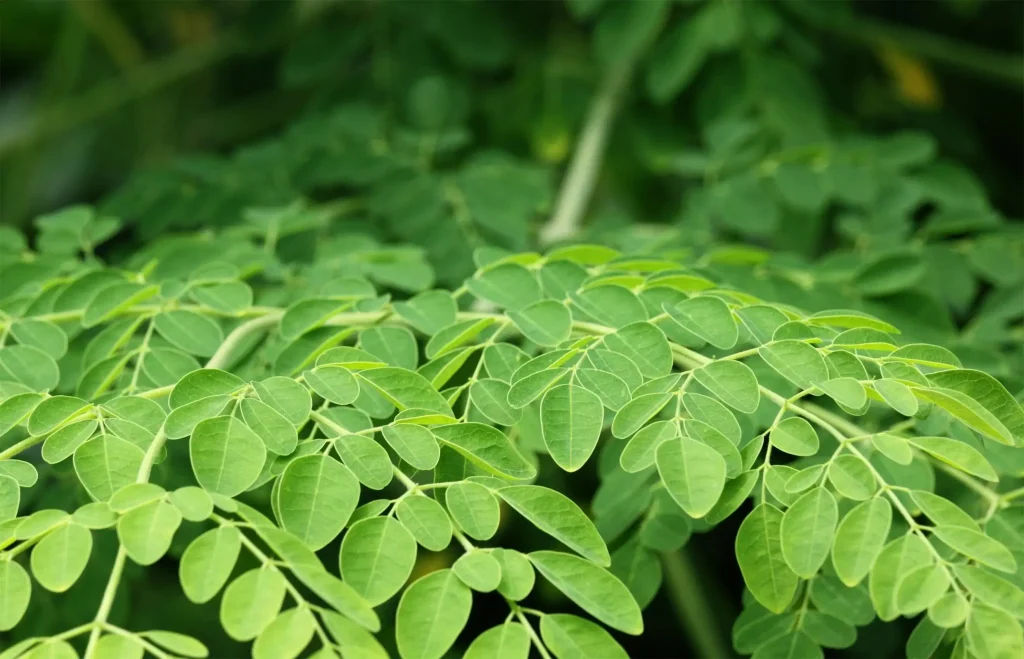
The Moringa Plant is a deciduous tree with a subterranean rootstock. It grows as a tree and has a horseradish-like flavor. It produces long, oval, green seed pods with approximately twenty seeds. Upon maturity, the seeds burst open.
The Moringa’s trunk grows to 10 to 45 cm in diameter and has an umbrella-shaped crown. Its flowers are small and white to cream in color, about 2.5cm wide, and are highly fragrant.
Studies in India have shown that the Moringa Plant has multiple medicinal benefits. One study showed that it improved breastfeeding among hypertensive mothers. It also inhibited platelet aggregation. This study was published in the Journal of Ethnopharmacol.
Another study found that the Moringa leaf tablet had antioxidant and anti-lipidaemia effects. This study also demonstrated that Moringa can help prevent diabetes and heart disease.
It grows well in most soils and requires minimal fertilization once it is established. Its deep roots can effectively extract nutrients from the soil.
However, if you want to make sure your moringa is healthy and thriving, you should consider applying a high-quality moringa fertilizer to the soil around the tree. Ideally, you’ll apply 300 g of commercial nitrogen fertilizer per tree.
Alternatively, you could substitute the commercial fertilizer with compost or well-rotted farmyard manure.
The Moringa plant is native to the Himalayan Mountains but has been introduced to most parts of Asia and Africa, as well as Hawaii and the Americas.
It grows quickly, is drought-resistant, and can be grown from seed or cutting. The leaves and stems of the Moringa tree are used for food and medicinal purposes.
The plants contain a resin that is absorbed by the body and helps with the healing process. The Moringa Plant is beneficial for the soil and the environment.
Moringa Powder – the Medicinal Benefits
Moringa Powder is made from the leaves of the moringa tree. It has a wide range of medicinal benefits and has been used in traditional medicine for centuries.
Although some research supports its benefits, there is limited human testing to back them up. Because of this, it is difficult to make general recommendations.
In addition to its medicinal benefits, moringa powder has other uses, too. Read on to learn more about this versatile powder.
Studies have shown that moringa can reduce high cholesterol. High cholesterol levels are a common cause of many diseases including heart disease.
Using moringa leaves to lower cholesterol levels can significantly reduce your risk for cardiovascular disease.
Also, pregnant women typically have higher levels of cholesterol, which increase their risk of developing gestational diabetes.
By reducing your cholesterol, you can prevent or reduce your risk for this condition. However, you should always consult your doctor before taking any supplements.
The leaf of the moringa tree is rich in phytochemicals. Moringa contains calcium, iron, magnesium, phosphorus, and a variety of other minerals and vitamins.
Its anti-inflammatory properties can help people with arthritis. It is also rich in antioxidants and can help to maintain a healthy lipid profile.
Moringa can also improve your health and lower your blood pressure. Moringa leaves powder contains an abundance of amino acids, which help your body function properly.
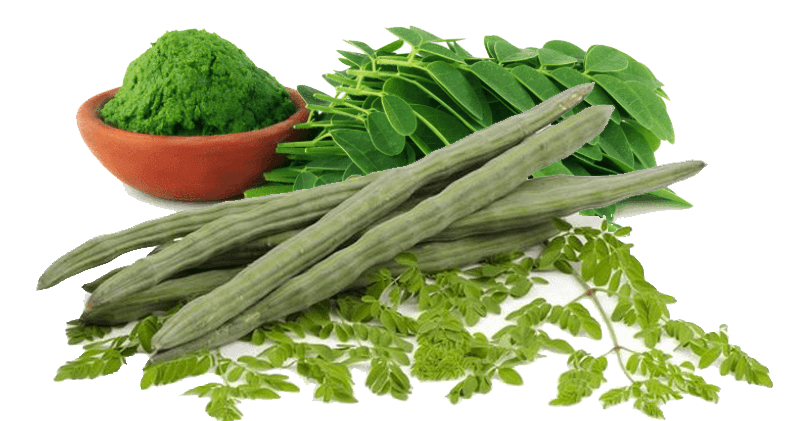
Moringa Tea – A Healthy Alternative to Coffee
Drinking Moringa tea is a healthy and delicious way to start the day. The leaves of the moringa plant can be dried and powdered to create a drink that is a good alternative to coffee.
After cleaning the leaves, boil them in water and add the moringa powder. You can also add turmeric roots to the tea, but this is not required. Once steeped, drink the tea every day.
Several studies have indicated that moringa may have several health benefits. It is said to reduce the risk of diabetes, lower blood sugar, and protect against heart disease and cancer.
In addition, moringa contains a polyphenol called quercetin which may improve blood sugar control.
Although its health benefits are still being studied, this tea may be a great addition to your daily diet. And, as the name suggests, it is also a powerful source of antioxidants.
The antioxidants in moringa tea are known to help reduce cholesterol levels, improve blood pressure, and decrease the risk of diabetes.
It is also thought to have hydrating and detoxifying properties. As a result, drinking moringa tea can help you improve your health and improve your skin’s complexion.
Additionally, moringa contains polyphenols, which can help you reduce the risk of developing various health conditions. Moringa tea can also help you prevent headaches and migraines.
The leaves of moringa should be dried and stored in an airtight container. Then, crush or crumble the leaves to make a drink. Moringa tea should not be consumed during pregnancy. It may cause contractions in the uterus, which can lead to miscarriage.
However, it is safe and has no toxicity associated with it. The benefits of this plant tea make it a healthy alternative to coffee and other beverages.
We hope you liked our article on ‘moringa oleifera health benefits and side effects’, and don’t forget to share it with your friends.
You’re reading nowthendigital.com — which breaks the news about Uganda, Kenya, Nigeria, South Africa and the rest of the world, day after day. Be sure to check out our homepage for all the latest news, and follow NOW THEN DIGITAL on YouTube, Google, Web Stories, Google News, Medium, Twitter, Reddit, Pinterest and Flipboard to stay in the loop.


